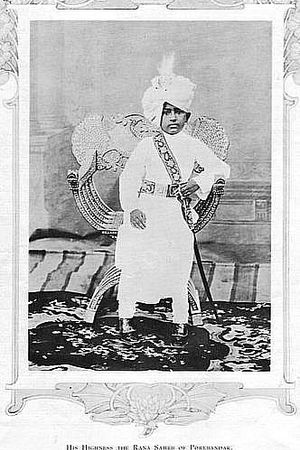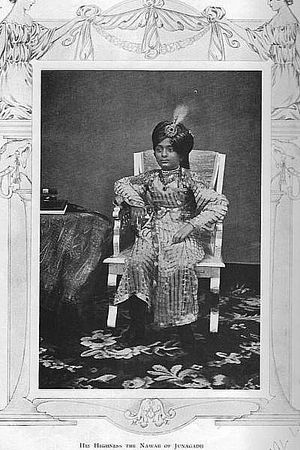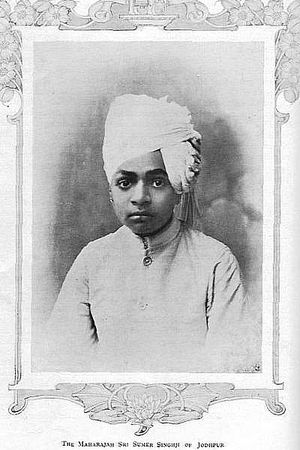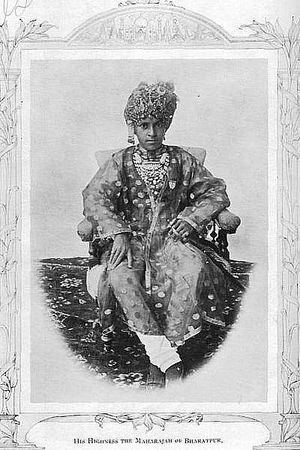

No opportunity to collect revenue was ever missed ..
Accordingly a force of 300 Europeans , consisting of 100 men of the artillery and 200 of the 60th Rifles, were dispatched towards Hapur on the morning of the 27th August, the last and greatest day of Muharram. The first halting-place was selected with a view of allowing the troops to remain near enough to Meerut to hear any firing , should any disturbances occur there, and at the same time to frighten Walidad by the advance of our troops . In the spirit of the instructions already issued , the column had orders not to go near Malagarh nor to advance beyond Hapur unless attacked or pursuing . It therefore took up up a position near Hapur, and Mr. Wilson took advantage of the presence of the troops to collect the revenue. The Rajput landowners of Pilkhua sent in to say their revenue was ready and that they were ready to bring it in , but begged that two messengers should be sent to accompany them . Two men were sent , but as soon as they entered the village were murdered by these very people of Pilkhua. A portion of the column visited this village with exemplary punishment. ... page 183 of The Old Gazetteer of Meerut 1903.
This probably looks like 'authorised' armed robbery to you . You are not alone - read below about what William Sleeman had to say in 1833 . The reference is to Indian Royalty of course.
"Pay your taxes" they go for Vikas and Suraksha says today's advertisement. One wonders what is meant by Vikas . No doubt shortage of Electricity, no water and bads road improve character! The Security and Morale of our Defence personnel is quite well looked after though, and with an 80,000 crore Budget it should be.
If Governments were to leave no degree of self-government to the communities of which the society is composed, this moral check would really cease — the law would undertake to secure every right, and enforce every duty; and men would cease to depend upon each other's good opinion and good feelings.[12]
There is perhaps no part of the world where the communities of which the society is composed have been left so much to self - government as in India. There has seldom been any idea of a reciprocity of duties and rights between the governing and the governed; the sovereign who has possession feels that he has a right to levy certain taxes from the land for the maintenance of the public establishments, which he requires to keep down rebellion against his rule, and to defend his dominions against all who may wish to intrude and seize upon them; and to assist him in acquiring the dominions of other princes when favourable opportunities offer; but he has no idea of a reciprocal duty towards those from whom he draws his revenues. The peasantry from whom the prince draws his revenues feel that they are bound to pay that revenue; that, if they do not pay it, he will, with his strong arm, turn them out and give to others their possessions—but they have no idea of any right on their part to any return from him. The village communities were everywhere left almost entirely to self-government; and the virtues of truth and honesty, in all their relations with each other, were indispensably necessary to enable them to govern themselves.[13]
A common interest often united a good many village communities in a bond of union, and established a kind of brotherhood over extensive tracts of richly cultivated land. Self-interest required that they should unite to defend themselves against attacks with which they were threatened at every returning harvest in a country where every prince was a robber upon a scale more or less largely according to his means, and took the field to rob while the lands were covered with the ripe crops upon which his troops might subsist; and where every man who practised robbery with open violence followed what he called an 'imperial trade' (padshahi kam)—the only trade worthy the character of a gentleman. The same interest required that they should unite in deceiving their own prince, and all his officers, great and small, as to the real resources of their estates; because they all knew that the prince would admit of no other limits to his exactions than their abilities to pay at the harvest. Though, in their relations with each other, all these village communities spoke as much truth as those of any other communities in the world; still, in their relation with the Government, they told as many lies; for falsehood, in the one set of relations, would have incurred the odium of the whole of their circles of society — truth, in the other, would often have involved the same penalty. If a man had told a lie to cheat his neighbour, he would have become an object of hatred and contempt — if he told a lie to save his neighbour's fields from an increase of rent or tax, he would have become an object of esteem and respect.[14] If the Government officers were asked whether there was any truth to be found among such communities, they would say, No, that the truth was not in them; because they would not cut each other's throats by telling them the real value of each other's fields.
If the peasantry were asked, they would say there was plenty of truth to be found everywhere except among a few scoundrels, who, to curry favour with the Government officers, betrayed their trust, and told the value of their neighbours' fields. In their ideas, he might as well have gone off, and brought down the common enemy upon them in the shape of some princely robber of the neighbourhood.
In India, the difference between the army of a prince and the gang of a robber was, in the general estimation of the people, only in degree—they were both driving an imperial trade, a 'padshahi kam'. Both took the auspices, and set out on their expedition after the Dasahra, when the autumn crops were ripening; and both thought the Deity propitiated as soon as they found the omens favourable;[15] one attacked palaces and capitals, the other villages and merchants' storerooms. The members of the army of the prince thought as little of the justice or injustice of his cause as those of the gang of the robber; the people of his capital hailed the return of the victorious prince who had contributed so much to their wealth, to his booty, and to their self- love by his victory. The village community received back the robber and his gang with the same feelings: by their skill and daring they had come back loaded with wealth, which they were always disposed to spend liberally with their neighbours. There was no more of truth in the prince and his army in their relations with the princes and people of neighbouring principalities, than in the robber and his gang in their relations with the people robbed. The prince flatters the self-love of his army and his people; the robber flatters that of his gang and his village—the question is only in degree; the persons whose self-love is flattered are blind to the injustice and cruelty of the attack—the prince is the idol of a people, the robber the idol of a gang. Was ever robber more atrocious in his attacks upon a merchant or a village than Louis XIV of France in his attacks upon the Palatine and Palatinate of the Rhine? How many thousand similar instances might be quoted of princes idolized by their people for deeds equally atrocious in their relations with other people? What nation or sovereign ever found fault with their ambassadors for telling lies to the kings, courts, and people of other countries?[16]
Rome, during the whole period of her history, was a mere den of execrable thieves, whose feelings were systematically brutalized by the most revolting spectacles, that they might have none of those sympathies with suffering humanity, none of those 'compunctious visitings of conscience', which might be found prejudicial to the interests of the gang, and beneficial to the rest of mankind. Take, for example, the conduct of this atrocious gang under Aemilius Paulus, ..... Take indeed the whole of her history as a republic, and we find it that of the most atrocious band of robbers that was ever associated against the rest of their species. In her relations with the rest of mankind Rome was collectively devoid of truth; and her citizens, who were sent to govern conquered countries, were no less devoid of truth individually—they cared nothing whatever for the feelings or the opinions of the people governed; in their dealings with them, truth and honour were entirely disregarded. The only people whose favourable opinion they had any desire to cultivate were the members of the great gang; and the most effectual mode of conciliating them was to plunder the people of conquered countries, and distribute the fruits among them in presents of one kind or another. Can any man read without shuddering that it was the practice among this atrocious gang to have all the multitude of unhappy prisoners of both sexes, and of all ranks and ages,—who annually graced the triumphs of their generals, taken off and murdered just at the moment when these generals reached the Capitol, amid the shouts of the multitude, that their joys might be augmented by the sight or consciousness of the sufferings of others? (See Hooke's Roman History, vol. iii, p. 488; vol. iv, p. 541.) 'It was the custom that, when the triumphant conqueror turned his chariot towards the Capitol, he commanded the captives to be led to prison, and there put to death, that so the glory of the victor and the miseries of the vanquished might be in the same moment at the utmost. How many millions of the most innocent and amiable of their species must have been offered up as human sacrifices to the triumphs of the leaders of this great gang! The women were almost as brutalized as the men; lovers met to talk 'soft nonsense', at exhibitions of gladiators.[17]
You can read the entire text here. This version at project Gutenberg site has even those chapters which were missing from certain editions of this book . And you can search Electronic text much better than you can printed text. But click here only if you have Broadband the size of the file is over 1Mb. Rambles & recollections of an Indian Offical ( 1836 text - W. M. Sleeman),





So they let the children play in the 'Corridors of Power' with Crowns and Thrones and of course 'Matters of State'. These pictures were taken during the last Dilli Durbar. You can see others at Pictures and accounts from the last Dilli Durbar.
Well in those days Governance was indeed child's play. How ? The largest of our cities was Delhi ( almost ALL older towns in India have a Dilli Darwaza ), and the population there was maybe close to 3 lakhs . It was below 7 or 8 lakhs after Independence. Sufficient tax was collected to maintain the palace and a small army. The welfare of the populace was completely incidental. What about the courts ? Well it seems there is enough evidence that, even in the lofty Diwan-iKhas and Diwan-e-Aam Akbar dealt with cases dealing with what would be called petty theft and fraud today. And Akbar who was a good king could not read or write :). Even today UP which is considered "backward" does not have very large cities and the population is quite evenly spread over the whole area. A book written by an Englishman in the late 18th Century has for its title "Travels in the Countries of Hindustan".
Your search for detailed information about Rajahs Maharajahs , King and Queens and whatever they were called in other languages ends here. This link takes you to the India section. Another way - search for 'The Royal Ark' in Google. Few of these were British colonies. Even the USA is listed as having Royalty - worth investigation!
Google wants to scan and put 100,000 books in searchable format . Microsoft also wants to do that . Meanwhile all and more are available at project Gutenberg they are not content searchable but the enormous range is handpicked . As an exercise type in the amazing line "It was the best of times and it was the worst of times " in any search box of any search engine, and you are sure to get "the Tale of two cities" so you already have content searchable material it is not clear what Google/ Microsoft contribution / business venture is going to be? By the way Project Gutenberg was there before the World Wide Web appeared on the Internet.
What do you make of the news that Google's Adv revenue is larger than ANY existing Media chain. "After it outsells every newspaper, magazine, and TV network in advertising this year, one analyst thinks revenue could hit $9.5 billion next year. " Comments about Adsense. The writing is on the wall though .. This time the Dotcoms will come with a boom which will never stop resounding.
For the folk in the West Summer can never be long enough . We keep wondering where it gets the extra months from? It is going finally . And the whole of North India will burst into song and festivals.
How would life be without TV without newspapers and without magazines. Quite bad ? But for a day even a week - JUST WONDERFUL !!! One cannot deny that news has been pretty bad recently. Starting with the Tsunami last year. And now the earthquake. But if you restrict the horizon to just the hometown, things can get quite monotonous. Keep the disasters in mind, and that monotony itself can be viewed as the Gift of the Gods. However one thing which can be expected to shatter the tedium is the Electricity . When it is going to be off, is far more predictable than when it is going to be on. Without our politicians India would be nowhere on the International scenario. They are going to make us a Superpower without Electricity, Water , decent roads. But to keep our morale up we can always compare ourselves with the US. It is never difficult to find someone who will say I saw a pothole in the US.
It is here alive and well. But there is a problem.The good folks at BSNL say you need Windows XP to install it. Not all of us want XP as you require substantial upgrades in Memory , CPU speed and disk capacity. There is a way out . Search for "PPPoe" "Calcutta". You should get a site with full instructions about how to install in Win 98 and Linux. Click here for detailed instructions and downloads required.